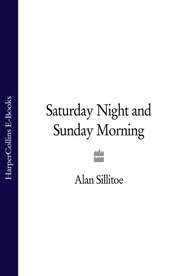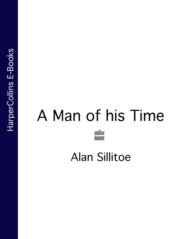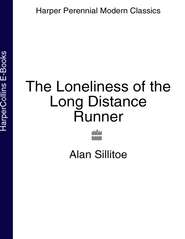По всем вопросам обращайтесь на: info@litportal.ru
(©) 2003-2024.
✖
Alligator Playground
Автор
Год написания книги
2018
Настройки чтения
Размер шрифта
Высота строк
Поля
She was getting undressed for bed, and couldn’t understand why Tom had been so attracted as not only to blab for half an hour, though mostly about himself and what a big shot he was, but even to fetch her another drink and, later in the evening, ask if he could see her home. Her no to this bumped his self confidence into paralysis, but she couldn’t bear him to see the slummy house at 24 Dustbin Grove where she lived.
Her put-down hadn’t been unpleasant, though however well she behaved she was always aware that her inborn mannerisms might give her away. The split drained her, but now she could feel the beautiful all-powerful woman because even Tom was interested in her. While settling into bed she was sorry not to have come back in his car instead of by the packed Tube. He was sure to be good at making love, certainly better than the deadbeats she’d so far tried it with.
She had held him off for so long that he became dead set on marriage, though not more keenly than she. He had made as good a husband as he was capable of, and while that seemed all right most of the time for both, it didn’t entirely come up to par for her. Something was missing which he was incapable of giving, a limit he couldn’t pass, unless what she sensed lacking wasn’t really there. Perhaps it was something in herself, though she didn’t see how.
He thought the fact that he could fuck well covered a multitude of sins, and much of the time it did, but at her most discontented she wondered whether the deadness in him was what stopped the uxorious devotion she craved from coming out. Even so, she supposed she was as much in love with him as she could be with any man, his only fault being that he gave too much time to his work.
A year after marrying she had a miscarriage. No, they had a miscarriage. For no known reason, the great event of their lives never happened. Did he wish it on her because he wondered if he was the father? He had no reason to, but every insane notion came to mind, to such stony country had the loss driven her. All talk was loving while she was expecting: Saul for him and John for her, or Rebecca for her and Mary for him. They discussed the matter for days and weeks, filling a chest of drawers with clothes for either sex and any age up to ten.
Her laugh was acidic. Toys and trinkets, tuckers and bibs, cups and a silver spoon, stashed and no longer looked at, the trunk locked. Lavender was powdered between cot blankets and cot sheets, as her mother had shown. The stupefaction lasted months. Maybe it was still going on, when she thought about it. She’d had tests but nothing was wrong – fuck-nothing was her anguished cry. Tom’s ebullience reasserted itself, telling her they could only exist and let the pain evaporate, and that nothing could part two people who had suffered such a blow.
She sat on the bed, and the sad resonances of Elgar’s music put her in mind of a motor excursion up the Wye Valley and into the Malvern Hills. Tom had arranged the trip to divert her from the miscarriage, but it only expanded the wilderness of loss, for how could anything other than going deeper into yourself find a solution as to what had gone wrong?
Such music indicated that she had done well for herself since leaving Yorkshire with a cheap and overfull suitcase, all that time ago. She had often thought of slinging the case away – a treasured memento in the attic – but pictured the dustbin men footballing it into the van with a laugh, wondering how such a shoddy item came to be in her opulent house.
Tom soon had a firm of his own, and travelled the world for business, a big man in it, youngish though he still was. She gave up her job, since more money was available from his gaudy books than they could throw about on everyday expenses. Habits of thrift from Yorkshire made her unwilling to spend unless for something essential.
To be lavish with his money would make her feel unequal, parsimony a counterweight to remaining herself, and not being completely taken in by a man who could give himself more cash in a week than many earned in a year.
And what an efficient little wifey I’ve turned into, she thought, grooming and mooning, entertaining and chatelaining. She supposed she’d hoped for it on running away from home, because didn’t you always achieve what you dreamed of in your ignorance, and even get that bit of romantic extra you never quite admitted to wanting for fear it wouldn’t happen?
Twice a year she loaded the Volvo with whatever pressies her parents might like, and ferried them up to Yorkshire: a hamper from Selfridges, a video and some James Cagney movies for her father; a camcorder in case they felt like making a memento of them staring at each other and saying nothing week after week.
Tom told her he loved Fred and Janice, and Angela laughed at how they behaved with their language and fussed to make him comfortable. He was too busy to go more than twice, but liked to choose their gifts, once sending a box of chocolates so big they joked about roping it to the luggage rack.
On the Great North Road she always stopped for lunch at The George in Stamford. She liked the old fashioned place, because Tom once booked them a room on their way to the Edinburgh Festival. She sat in the lounge afterwards for coffee. Feeling herself to be a woman of mystery and elegance, she surprised herself when, seeing a man come in who she fancied, she wondered whether she would go away with him for the weekend if he asked.
‘Fell off the back of a lorry, did they?’ her father said, seeing the gifts. ‘I hope the police won’t be round in the morning. We don’t want to upset your mother, do we? Do we, Janice?’ he bawled.
‘Don’t be daft,’ her mother said. ‘We should be glad we’ve got such a nice son-in-law.’
Her father grumbled, no gracious corpuscles in his blood. ‘I like to look life in the eye.’ The first time he met Tom he said to Angela on the QT that such a man would end up either as a millionaire or in prison. A real judge of character, but that was his way, and she could never stand being at home for more than seventytwo hours.
The first day was tolerable because she took from her parents all that had been useful in her early life. Not much, but it served, though she was irritated at feeling sentimental about it. People gawped as she walked around the village, wondering what she was up to in the call box by the main road trying to get through to Tom. She strode to the stone-walled fields, and remembered running across them as a kid. Now she wore trousers, and laughed at the fact that she was too tall to graze her crotch anymore.
On the second day in the terraced house the silence was even thicker than the walls she had clambered over, and an effort was needed to stand up and go outside. But after the midday dinner of overcooked lamb, potatoes and cabbage, her father took his jacket from the back of the door and said: ‘Come on, Angie, let’s walk down the road to the pit. The men have been laid off, and the women have set up a protest camp outside gates. You’ll need a scarf and hat, though.’
Maintenance men kept the mine humming so that seams wouldn’t collapse or water pour in. Pits were closing all over the coalfield, he said, but the miners wanted jobs not redundancy money. ‘The government’s playing arsy-versy one minute, and changing its tactics the next, just to unnerve everybody. They treat people like bloody schoolkids.’
Three women were warming themselves at a coalfired brazier, all dressed in various styles of anoraks, rainbow scarves and woolly hats. One young woman sat on a plank between two barrels, helping a young boy to drink out of a titty-bottle filled with warm tea.
An elderly grey-haired woman in a duffel coat, tall and thin, came out of the headquarters caravan. ‘Up from London, are yer?’ she said, when Fred had introduced Angela. ‘My name’s Enid. You don’t talk like us anymore.’
‘I can’t help that, can I?’ The woman had spoken with humour perhaps, but Angela had never liked that kind because whoever used it only wanted to put one over on you. She regretted her sharp tone, and even having opened her mouth.
‘Well, here we are,’ Enid went on, ‘doing the only thing we can to mek the buggers see sense. I’m not sure how far we’ll get, though. They’re doing their best to shift us. Last week they set the bulldozers on us, but the drivers refused to do it, bless ’em. The media and TV was here, and the powers that be didn’t like that, so they ’ad to call ’em off.’
A young woman came out of the caravan with mugs of coffee and gave one to Angela. ‘We was at school together, don’t you remember?’ The wind blew the flaps of her headscarf this way and that. ‘We was in Miss Griffin’s class.’
She said yes, now I do, and knew she would have been here as well if she had stayed and married a man whose only hope of work was down the pit – being bossed about by this woman who had set herself up as their leader.
‘The men are used to the work, and get good money,’ Enid said. ‘It’s the only job they can do, and there’s no other. If many more pits close it’ll be a disaster. Even now, all these villages are dying, and the crime rate’s soared. At one time you could go out without locking your door. We used to police the place ourselves, you might say, but nowadays the young lads break in and tek everything. It goes on all the time.’
‘Enid’s one o’ the best,’ her father whispered. ‘None better. The salt o’ the earth.’ Such phrases suggested matiness, and bigotry, yet she listened, asking the right questions, with words and gestures natural to her. Still feeling a fraud, yet knowing they had more of a case than anybody else, she signed the petition, and gave a tenner for the fighting fund.
Enid told her father he had a lovely daughter, and there were tears of pride in his eyes. He held her hand affectionately by the back door, but let it fall as they went in, for fear her mother would see.
On the third day she said she had to go home and look after Tom, and was as happy to get away as the first time, unable to smile till reaching Doncaster and heading south. To have stayed longer might have turned her back into someone she had always had a horror of being, only feeling what she assumed to be her real self when a tea tray was brought to her table at the hotel in Stamford.
Tom was away in Frankfurt again – or was it Bologna – conferring with publishers about translations, reprints and bestsellers. He was all over the place these days, but would shine in tomorrow, merry and bright before burying himself back in the office.
The melancholy notes of Elgar stopped, and Tom’s voice vibrated at her ribs, as if he had been dead a year and was talking from the other side of heaven or hell, if there were such places, which she wouldn’t believe till she had been there and seen for herself. His tone was low-pitched, and eerily confidential in case someone who shouldn’t be was pressing an ear to the other side of the door.
‘Diana? Tom. It’ll be marvellous. Can’t bear to wait. I know. Have to, won’t I? We both will.’ He gave a sneaky laugh, new to Angela. ‘It’ll be worth it, I know.’
She sat in an armchair, and his voice was clearer. Her flesh felt as if coated with ice. Last night she had been to see a play at Notting Hill Gate. He had come in before her, and complained of exhaustion when she got into bed with nothing on and laid lovingly by him.
‘No, I won’t pick you up. Get a taxi, or a minicab, if you like. All right, a proper black cab. Safer these days. I’ll see you at the check-in. Oh, don’t worry, I’ll be there. Who? Norman Bakewell? How did his interview go? Yes, he’s always very good. I’ve never known him not to be, providing he’s interviewed by an attractive woman. You saw him afterwards? What did he say? No, he doesn’t know about us. Nobody does. He is a vile old gossip. Angela? Glad to get rid of me, I expect. How do I know what she does? Of course she doesn’t, so don’t get nervous. I must hang up, though. See you at the check-in. You’ve got your ticket and passport?’ Another sneaky laugh. ‘You’d look a right charlie getting there and finding it was out of date. I’ve heard of it happening. Mine? I check it every morning before brushing my teeth. Can’t wait, either, my darling. Love you. Yes, a lot. Love you, then. ’Bye. All right. ’Bye, love.’
No more voice. She knew she should laugh, but her lips wouldn’t untwist. Like an episode from one of Bakewell’s gloating and cynical books. Well, the next chapter would be hers. The heating was on full but her hands and feet were cold. Maybe an unknown voice would come out of the hissing tape with the gen on how to kill herself. Better still if it told her the best way of doing him in without being found out.
She couldn’t think, so neither was likely, head blocked solid till her eyes were sore. At the end of the Elgar she had needed to go into the bathroom and pee, but didn’t want to anymore. When she did she might squat over those lovely bespoke frilly fronted shirts he was fond of poncing around in.
Diana, he had called her. ‘Diana,’ she said aloud, ‘I’ll fucking Diana her. I’ll dish him, as well. I’ll make the bastards spit tacks.’ The only time he had shed tears was once when she asked him to peel some onions before a dinner party.
THREE (#ulink_b75185df-e992-5a3f-92c8-331c7db08ae8)
TOM TOOK INTO account only the surface features of life, and never went properly into the depths to try and make sense of the turmoil, and bring it under some form of control. In any case, to imagine it would be beneficial or worthwhile or – more important – costeffective, was futile. Wasn’t the dazzle of the surface more attractive than trawling for significance in the stinking slime? Such nitpicking was the work of novelists like Norman Bakewell who, in their hit or miss fashion, manage it fairly well, and make it amusing to read about.
Any answers might be too gloomy to endure, or too bland to respect, and only those without a satisfying life deceived themselves into thinking an explanation could be dragged out of the subconscious (whatever that was) or that any good was to be had from fruitless revelations. And suppose you were telling someone about yourself, who would be interested in self pitying maunderings rather than hearing of bizarre and manly events that made a fascinating story?
Only pathetic and inferior people got involved with the therapy of analysis, or took drugs to blast a way through the obfuscations to a mind that was still as puerile when the dust had blown away. Tom thought that the less he knew about himself the more of a puzzle he would seem to everyone else, and there was much advantage to be gained from that.
After three days of unmitigated sex he travelled back on a different plane to Diana, thus avoiding any taint of suspicion. He left nothing to chance, yet his unthreaded spirit plagued him as he stretched both legs in first-class and poured from a half-bottle of champagne. The stewardess wondered why he laughed, and why he drank so obviously to himself by holding the glass up to her. Poor slob, she thought, he’s put his girlfriend on another flight, and now he has to go home and face his wife.
Tom found it encouraging to believe that whenever he had been to bed with Diana – or whoever else – any young woman within range would be curious about him. It could be that his marriage to Angela had made him an interesting if not near perfect man for other women who, being clever and intuitive, felt it – which thought made him smile as he fastened his safety belt.
Yet things didn’t seem as right as they ought to be, and there were times when he felt timid and insignificant, having nothing, deserving nothing, and existing in an aura of boring mediocrity, an utterly dissatisfied state of mind which no one else was allowed to suspect. To lift himself out of this near fatal fit of corroding worthlessness needed such energy as, when he succeeded, gave him a shark-like and not unsubtle advantage in dealing with anyone at work (and elsewhere) who stood in his way. He never knew the reason for this sudden descent into a bleak landscape, had no indication as to where it was or where it had come from. God-given and God-smitten, was all he could say. Maybe it was the curse of the black dog, which resulted from too much good living, too much hard work, and too much sex.
A glimpse of Hyde Park between the cumulus helped him back to an awareness of the world, making him feel as if London and everyone in it belonged to him. He never travelled with enough luggage to put on the conveyor, so could go through the nothing to declare – but not too quickly in case the Customs people suspected his briefcase to be bulging with crack – and take a taxi straight to the office.
The M4 was blocked as usual, by a lorry that had shed its load – or was it a burst water main, or a chemical spill, or one of those common accidents involving a half blind non smoking teetotal vegetarian of eighty hurrying for his (or her) insulin shot? Well, whatever was wrong with Tom, he knew he was in love with Diana, and that their liaison was worth all he put into it, because the more you did the better it would get, which was better for both and so, ultimately, best of all for him.
Walking up the path at dusk, a raddled tiredness made every limb ache, but he forced a brisk pace, because for some reason it annoyed Angela when his behaviour suggested he’d had a hard day at the office. He supposed that even signs of a back-breaking slog down the coalmine would have put a curve of disapproval on her lips.
Leaves blowing erratically against the background of a lighted window made it look as if the house was on fire. She usually sat in the living room with her evening vodka and orange, but she wasn’t there. An empty bottle and glass lay on the low table, and every light from the entrance hall to the attic had been left on.
Not in the dazzling white kitchen, either, two plates on the floor overflowing with bits of something gone crispy and black. Upstairs two at a time, he found her by the uncurtained window of their bedroom, holding the little black tape recorder he had been so good as to bring her back from – where the hell was it?










